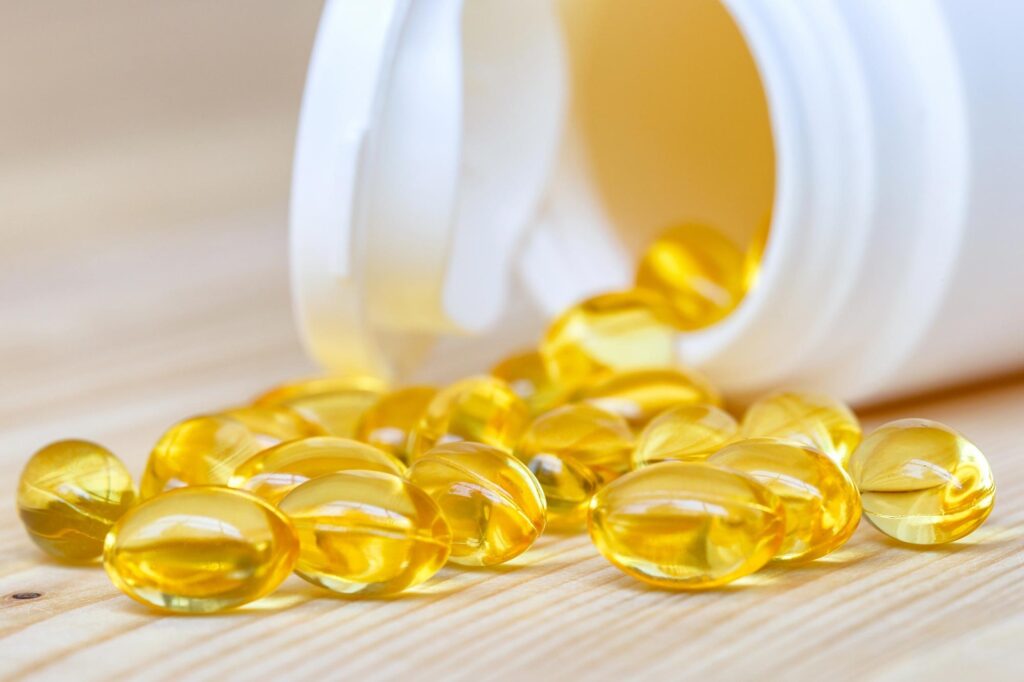
It comes as no shock that Vitamin D is good for physical health especially the growth and development of bones and teeth , But, did you know that it is equally essential to the well-being of your Mind? On that inquisitive note, let’s start by critically defining and sourcing out of Vitamin D.
Vitamin D defined;
Vitamin D is a fat-soluble vitamin in a family of compounds that includes vitamins D1, D2, and D3.
Vitamin D1
In the early 1920s, a German researcher called Adolf Windaus isolated three forms of vitamin D, which he named Vitamin D1, D2, and D3.
However, subsequent researchers discovered that what he called “vitamin D1” was a mixture of compounds rather than a pure vitamin D product, so the term D1 is no longer used.
Subsequently, it’s rather hard to explain the difference between D1 and D2 since “vitamin D1” technically doesn’t exist.
However, the other two forms – D2 and D3 – have been extensively researched, so it’s much easier to tell them apart.
Vitamin D2 (Ergocalciferol):
Source: Derived from plant-based sources, such as mushrooms exposed to ultraviolet (UV) light.
Function: Supports calcium absorption and bone health.
Supplementation: Available as supplements for those with limited sun exposure or specific dietary needs.
Bio-availability: Less effective than vitamin D3.
Usage: Commonly used in fortified foods and vegetarian/vegan supplements.
Vitamin D3 (Cholecalciferol):
Source: Synthesized in the skin when exposed to sunlight (UVB rays) or obtained from animal-based foods (e.g., fatty fish, egg yolks).
Function: Essential for bone health, immune function, and overall well-being.
Supplementation: Often recommended due to its superior bio-availability.
Usage: Found in most vitamin D supplements and fortified foods
Sources of Vitamin D include;
Morning Sun:

There’s good reason why vitamin D is called “the sunshine vitamin.”Your body produces vitamin D naturally when it’s directly exposed to sunlight.
When your skin is exposed to sunlight, it makes vitamin D from cholesterol. The sun’s ultraviolet B (UVB) rays hit cholesterol in the skin cells, providing the energy for vitamin D synthesis to occur.
The amount of sunlight needed for sufficient vitamin D production varies based on several factors.
Skin Pigmentation: People with darker skin need more sun exposure to produce vitamin D3 than those with lighter skin. Melanin in darker skin absorbs less UV light, affecting vitamin D synthesis.
Age: Infants, disabled individuals, and people over 70 may have inadequate sun exposure. Disabled people and infants often spend less time outdoors, while older adults’ skin is less efficient at producing vitamin D3.
Latitude and Season: Sunlight availability changes with location and time of year.
Geographic extremes; also impact sun exposure requirements.
Sunscreen: While sunscreen decreases vitamin D3 formation, the effect varies. Thicker sunscreen layers and higher SPF reduce synthesis.
Sunlight is a natural source of vitamin D, and spending just 10 to 15 minutes in the sun each day can help boost your body’s vitamin D levels
Foods rich in Vitamin D;

Oily, Fatty Fish: These are excellent sources of vitamin D. Consider including herring, salmon, mackerel, tuna, sardines, trout, and swordfish in your diet.
Beef Liver: Beef liver provides a significant amount of vitamin D.
Egg Yolks: Egg yolks contain natural vitamin D. Incorporate them into your meals.
Mushrooms: Certain mushrooms, such as raw shiitake, chanterelle, and oyster mushrooms, absorb vitamin D when exposed to UV radiation during growth.
Dairy Products: Cow’s milk is typically fortified with vitamin D. Additionally, butter and cheese contain some vitamin D.
Supplements:

If you have limited sun exposure or struggle to get enough vitamin D from food, supplements are an option. Consult a health-care professional to determine the right dosage for you.
Vitamin D, a secosteroid hormone, plays a crucial role in brain development and mental well-being. Here’s how it impacts mental health:
Neurodevelopment: Vitamin D promotes cell growth, differentiation, and neurodevelopment. It supports brain health by aiding in the regulation of neurotransmission.
Antioxidant and Anti-inflammatory Effects: Vitamin D has antioxidant properties, protecting neurons from oxidative stress. It also modulates inflammation, which can impact mental health.
Dopamine Function: Recent research suggests that vitamin D deficiency affects dopamine function. Dopamine release mechanisms are influenced by vitamin D levels.
Associations with Mental Disorders:
Mood Disorders: Vitamin D deficiency has been linked to mood disorders like depression. Some studies indicate that supplementation may alleviate depressive symptoms.
Psychotic Disorders: Evidence supports a potential association between vitamin D and schizophrenia. However, high-quality clinical trials are needed to establish its role in treatment
While soaking up that vitamin D from sunlight, here are some enjoyable activities you can do:
- Read a Book: Find a cozy spot outdoors and dive into a captivating novel or an inspiring non-fiction book.
- Listen to Music or Podcasts: Put on your favorite tunes or catch up on interesting podcasts while basking in the sun.
- Mindful Breathing or Meditation: Use the peaceful surroundings to practice deep breathing or meditation. It’s great for mental well-being!
- Sketch or Doodle: Grab a notebook and let your creativity flow. Draw the scenery around you or create abstract patterns.
- People-Watch: Observe passersby, birds, or squirrels. It’s fascinating to see the world go by.
- Enjoy a Snack: Pack a healthy snack (maybe some vitamin D-rich nuts) and savor it while you soak up the sun.
Remember whilst you enjoy your Vitamin D intake, In excession it can be maladaptive to your health and in absence can lead to Vitamin D deficiency. On that note, being intentional and mindful is crucial.
COMPILED AND WRITTEN BY;
PAMELA NATASHA BUGEMBE.

